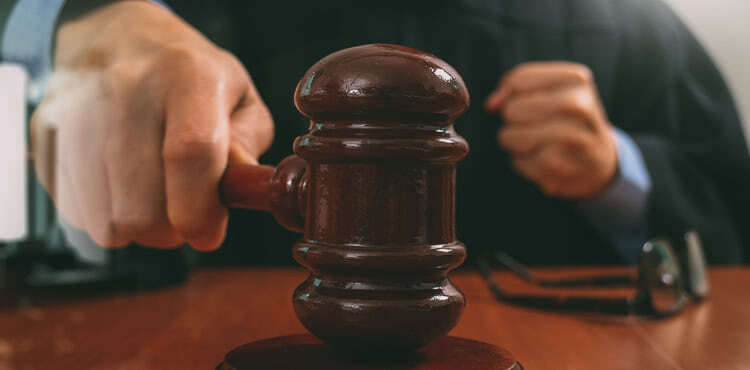Libel vs. slander in business: What’s the difference?

Nobody sees it coming. Even though a libel or slander lawsuit could cost millions of dollars, business owners are often not informed about the risks they face and how to protect their business and personal assets.
It doesn’t matter if you run a retail business, a construction company, or work independently as a consultant. If you’re a business owner, you run the risk of being sued for slander and libel.
Libel vs. slander: Defining the problem
Ask a dozen people what slander means, and you’ll likely get a dozen answers. The same goes if you ask the difference between libel and slander. That’s part of the problem. It’s hard to protect your company if you don’t know what the potential issues are.
What is slander?
Webster’s Dictionary defines slander as “the utterance of false charges or misrepresentations which defame and damage another's reputation.” Basically, slander is spoken – a lie or damaging comment told to someone about a third party.
When you share a rumor about your competition – for example, something that prevents them from getting a high-paying contract – that can be labeled as slander.
Read more about slander.
What is libel?
Libel is a lie or harmful message that is communicated through written or visual means, including text, video, advertisements, and social media.
If a message you publish online or in marketing materials is untrue, you could face a libel lawsuit. This is especially relevant as businesses increasingly rely on social media marketing.
Read more about libel.

How libel and slander can impact your business
Libel and slander laws don’t just apply to the actions of a business owner. A business can be sued for libel or slander because of anything potentially said or written by an employee, as well.
However, there are some guidelines. Most opinions offered by one person about another aren’t considered libel or slander in the United States. That changes if the comment is untrue and hurts the reputation or financial well-being of a person or business. That kind of opinion isn’t protected under the free speech provisions of the U.S. Constitution.
For someone to sue your business for libel or slander, they first have to prove the statement was false. It doesn’t matter how damaging, rude, or offensive the statement is; if it’s true, no one can sue you for slander or libel.
The plaintiff also has to show they suffered as a result, either financially or by reputation. Finally, the statement had to be said in public or written in a place where people can read it. If people don’t know the statement exists, it’s hard to argue that it damaged a reputation.
Libel or slander lawsuits
Some companies don’t carry liability protection because the owners believe speech is protected. That’s not the case. If you’re in a conversation with co-workers or your thoughts are where the public can read or hear them, they’re all fair game. That includes Facebook and Twitter posts, videos on YouTube, or even group chats.
Some statements will always be considered slander, no matter the circumstance. If you or an employee accuse someone of committing a crime, being infected with any type of disease, or claim they took part in sexual misconduct, there’s a good chance a slander lawsuit will be coming soon.
Also, no one linked to the company can attack the competition. For example, let’s say you have a popular Twitter account, with 15,000 followers. As a way to promote an upcoming event at your business, you tweet for people to “just remember, everything in our store is American-made, produced here in town, unlike Brand X. They get stuff shipped in from China.”
Unless you know Brand X only sells Chinese-made goods, that opens the door for a potential libel case. Brand X can say you’ve made the argument in public, and at least 15,000 people had the opportunity to see the words. If Brand X sells anything that is made in the United States, it can say you made a false statement. The situation gives them a reasonable argument in court because of your tweet.
How can you protect your business from libel or slander lawsuits?
A slander or libel lawsuit is expensive to fight, but also entirely preventable. As a business owner, you can:
- Counsel employees to be cautious about oral or written remarks about a person or company that could be considered disparaging.
- Include clauses in employment agreements to limit your liability.
But sometimes, that’s not enough. To prepare for a worst-case scenario, business owners can purchase a general liability insurance policy. Claims against you or your company for libel and slander are covered by general liability under personal and advertising injury coverage included with most policies.
For some industries, such as media professionals and lawyers, this coverage would be provided with a professional liability or errors and omissions policy.
Compare quotes from trusted carriers with Insureon
Complete Insureon's easy online application today to compare insurance quotes from top-rated U.S. carriers. Once you find the right policy for your small business, you can begin coverage in less than 24 hours.
Brian Carlton, Contributing Writer
Brian is a contributing writer that has experience covering finance, insurance, and education. He has award-winning journalism and writing experience that covers several topics like insurance, finance, and education.









